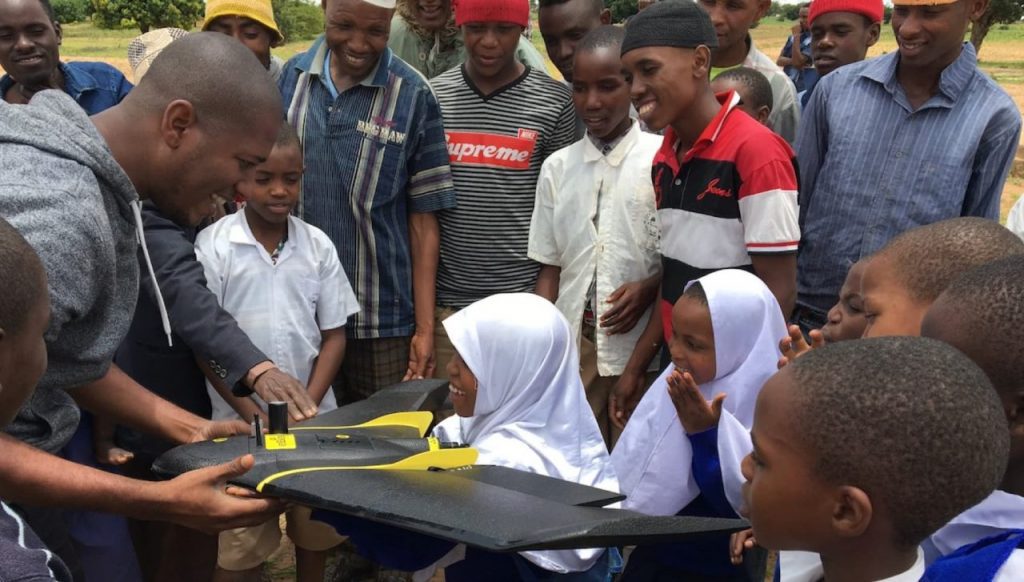
Technology for Good is Broken. Here’s How We’re Trying to Fix It.
February 13th, 2020

In Toward a Rational Society (1970), the philosopher Jürgen Habermas describes "the colonization of the public sphere through the use of instrumental technical rationality. In this sphere, complex social problems are reduced to technical questions, effectively removing the plurality of contending perspectives." This explains why today's social problems are "addressed only in aspects that are susceptible to technical solutions" (Heijmans 2004). Yet the problems we're facing are never just technical problems, which means that the solutions to these problems cannot be technical ones alone. Solutions must be social, inclusive, plural, and diverse.

This begs the question: why name our organization WeRobotics?
For better and worse, referencing an emerging technology in the name of an organization creates more visibility. It's safe to say that our work with Flying Labs has garnered more attention about inequality through technology than it might have if we were an organization about inequality alone (c.f. Adebe et al. 2020). As Adebe and team rightly note, technology can "offer us a tractable focus through which to notice anew and bring renewed attention to old problems." While the core focus of our work is very much on the broader problems of inequality, injustice, racism, discrimination, and the digital divide, framing these problems in part as a technology problem can help leverage resources and attention that might not accrue otherwise (Adebe et al. 2020).
But this is a double-edged sword. "The significant risk, of course, is that a focus on the technological aspects of a problem can restrict our attention to merely those aspects. A computing lens can have the effect of masking and pulling political capital away from other and more insidious facets of a problem, as well as other (non-technical) means of addressing it" (Adebe et al. 2020). So for the "Technology for Good" sector, what happens when we fail to recognize this risk?
The "Technology for Good" sector is broken because technology alone is not the solution. The sector ought to be rebranded as "Not the Solution for Good" since it mostly fails to address deeper patterns of injustice and inequality.
The "Technology for Good" sector is broken because technology alone is not the solution. The sector ought to be rebranded as "Not the Solution for Good" since it mostly fails to address deeper patterns of injustice and inequality. Whenever you read the claim "X for Good" (where X = some technology), for example, you should immediately question the claim by asking:
- Who is using that X;
- Who defines what "good" is;
- Who benefits from the use of X; and
- Where is this X being used?
In our case, the 'where' is the Global South, yet the 'who' is almost always the same: technologists from the Global North.
If Habermas were still writing today, he might refer to these technologists as "unwilling colonizers." Why unwilling? Because technologists in the Global North are part of a broken political, economic, and social system that colonizes the public sphere through the use of technical rationality. Many of them are as much a product of this system as they are a victim of said system. Many recognize full well that the system is broken, which explains why they "love to see all the discourse around ethics in tech." But at the same time, they note that "calling out tech workers who are just trying to earn an income and raise their kids for not caring enough about ethics leaves a bad taste in mouth." These self-aware technologists from the Global North must be included in the collective effort to fix the "Technology for Good" sector.
This, too, though, poses a risk as most technologists from the Global North are often not self-aware and thus look at problems in the Global South through the lens of technology alone. In doing so, they inevitably silence the plurality of perspectives. This paternalistic approach explains why "technology for good" projects in the Global South are often ineffective, unsustainable, and, at times, even harmful. To this end, and to paraphrase Adebe and team, a synecdochal focus on technology must walk a pragmatic—and tenuous—line between overemphasis on technical aspects, on the one hand, and due recognition of the work technology does to reinforce social systems, on the other.
Luckily, we do not have to walk this fine line alone.
Flying Labs in 25+ countries across Africa, Asia, and Latin America are kindly guiding us and each other along the way. They have local expertise and local knowledge. They understand local contexts and local needs. They are the plurality of perspectives needed to decolonize the public sphere and bring about systems change. They know that inclusion, diversity, and equal opportunity are not synonyms for justice or equality. These values must be complemented with actual structural transformation; for without such transformation, these values will bring those who were previously excluded into a new but equally broken system.
We need to decolonize the public sphere by changing the narrative and enabling meaningful structural change driven by local leadership.
This explains why we need to co-create a governance model which, when adopted at scale, will drive the systems change required to fix the social good sector. In sum, we need to decolonize the public sphere by changing the narrative and enabling meaningful structural change driven by local leadership. In this decolonized sphere, complex social problems are complex and tackled as such. Included in this sphere is the plurality of solutions necessary to address social issues effectively and sustainably.
Recent Articles

